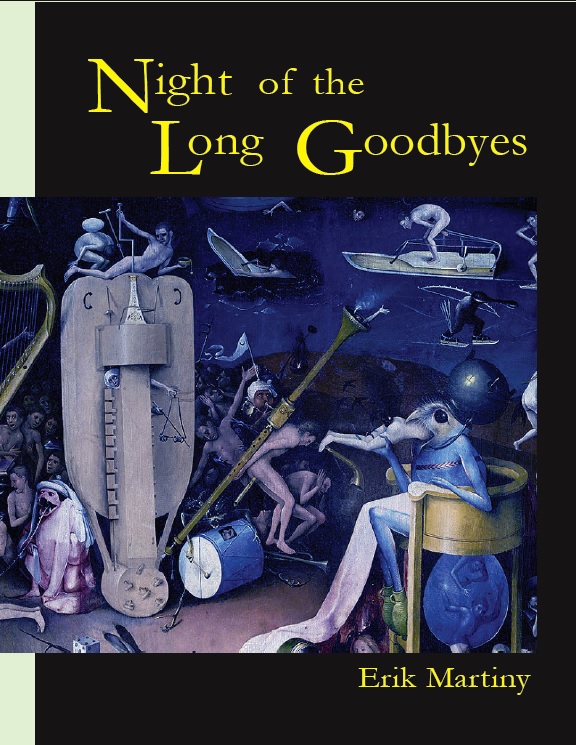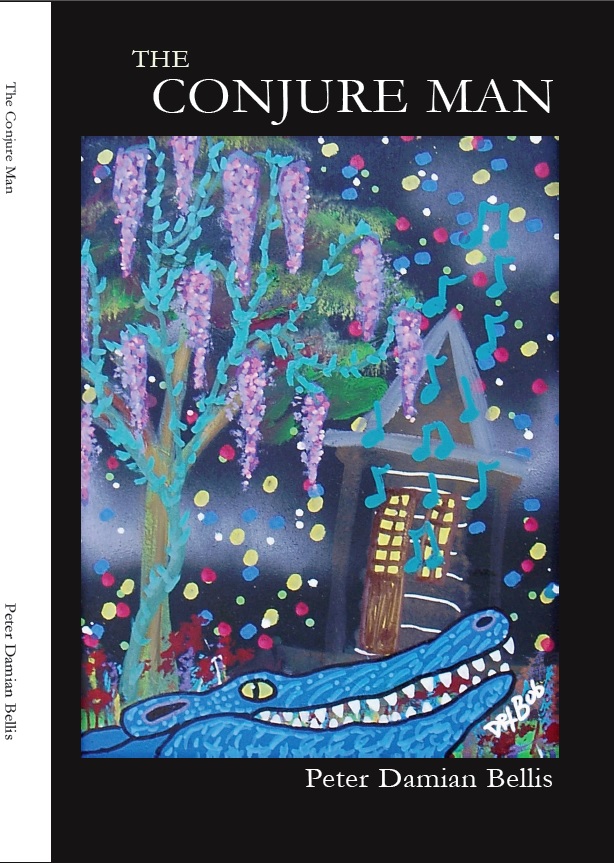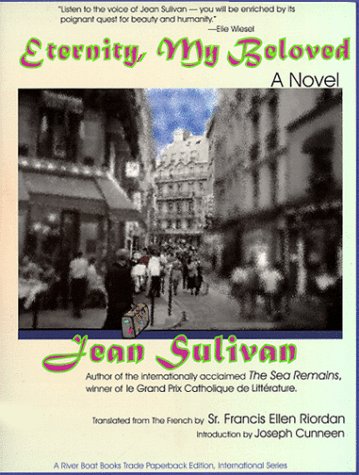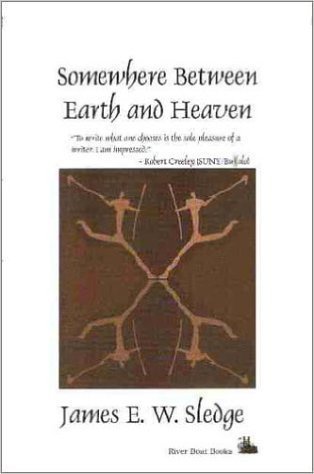Good Friends, Good Books, and a Sleepy Conscience: This is the Ideal Life!

Night of the Long Goodbyes by Erik Martiny
282 pages; list price: $15.95
ISBN: 978-1-7332565-4-4
Release date: October 29, 2019
At the beginning of Night of the Long Goodbyes, the narrator says we should think of this text as a truth-seeking account of a strange experience, presumably his, but also related to something called The Blue, which was triggered by an actual event called the Night of the Long Goodbyes. He assumes he will be dead when you are reading this. The historical backdrop for the narrator’s search for meaning, a soulful, angst-ridden search, is the rise of authoritarian populism and racism as the dominating forces in the world. It is history repeating itself, both the history of the world from the 1870s to 1945; and contemporary history. Or to be more precise, it is the logical, sickening, inevitable result of what the world will look like in 20 years’ time if we allow those in power to divide us using the rhetoric of populism, nationalism, and racism.
So the narrator is trying to make sense of how his world was turned inside-out. It is a world in which the political parties have the names of music bands. The people of Great Britain are solely focused on rediscovering the purity of Englishness. The logical, inevitable consequence of allowing this kind of thinking to go unchecked was the Night of the Long Goodbyes. The Night was in actual effect a Great Purge, an attempt to consolidate power in Great Britain. Afterwards, dark-skinned people were disbarred
using a paper bag test and so were once again seen as second-rate citizens. Genetic disposition tests were then introduced in 2043. And the narrator is nauseated by these events, but again, this is only the beginning of his tale. Then we find out the narrator is himself sick. He has asthma, but there is something else not quite right as well. He wonders why he keeps going. He is something of a nihilist and ascribes the cause to the fact that The Blue (somehow an after-effect of the Night of the Long Goodbyes) has taken over.
What is “the Blue”? Not even the narrator is sure. From our perspective as a reader, it is certainly a metaphor. But within the confines of the book itself, the Blue is a transformational substance that changes everything it comes into contact with, and not just structural, material changes. The Blue even seems to transform those aspects of existence we might otherwise call spiritual. Indeed, in the world of the Blue, the very idea of a soul is appended to technology.
So what is going to happen in this book? Let me use the narrator’s own words to at least indicate a direction.
“I’m surprised I’ve had the courage to begin again, after the destruction of my previous manuscript…. This will have to be a short account, only one of the countless narratives that have been spun around the Blue. What follows is a mutating man’s story. I hope that my story won’t be the only one to remain.”
The terrain of Night of the Long Goodbyes is dystopian partially in the manner of 1984 and Brave New World — but there is also an echo of Beckett as well as a strong Nouveau Roman undercurrent that suggests the novels of Alain Robbe-Grillet (The Erasers comes to mind), a feeling emphasized by the fact that one of the characters we encounter is named Hermann Gobb-Rillen, a writer known in the reality of the book for writing a famous novel also titled The Erasers. Night of the Long Goodbyes depicts reality as experienced through a kaleidoscope and will challenge every assumption one might possess about the meaning of life.
Erik Martiny is recommended reading.”
—Amélie Nothomb, winner of numerous literary prizes, including the Grand Prix du roman de l’Académie française (1999), and the Grand prix Jean Giono (2008)
Read a Starred Review by literary critic Warren Motte!


The Conjure Man by Peter Damian Bellis; 342 pages; ISBN: 978-0-9654756-6-2; Paperback $18.95; 1st River Boat Books edition (July 3, 2010); 2nd River Boat Books edition (February 4, 2022)
VIDEOS ON THE WEB
Click on the screenshots below to watch the following video trailers of The Conjure Man. [Note: the website addresses noted in the videos are from 2010 and are no longer valid.]
The Conjure Man is a magical realist novel in so far as the events of the novel move with a dream-like quality that exposes layer after layer of an ever-shifting reality. In this respect it is similar to the novels of Gabriel García Márquez. But the texture of the novel is Southern Gothic, more reminiscent of William Faulkner. Finally, it is also a coming of age story that mirrors Mark Twain’s Huck Finn.
The story: After Thaddeus Jacobs, the adopted son of a traveling preacher, is found naked with a young woman, he is expelled from the only family he has ever known. Guided by visions and a mysterious voice, he makes his way to a coastal South Carolina island, where he struggles to make his peace with God and himself in spite of his own strange cravings and the superstitious hatred of the islanders, who think he is the devil. The price of his inner peace, however, is absolute isolation, and it is only when he meets Kilby, a thirteen-year-old boy, that he rediscovers what it means to be human.
Part myth, part fable, part satire, and part coming-of-age story, The Conjure Man plumbs the emotional depths of the human psyche in prose both dreamlike in the images it conjures and intensely vivid in the psychology it reveals. Told from the alternating viewpoints of Kilby and Thaddeus, it depicts a world where magic does exist, and miracles are possible.
PRAISE FOR PETER DAMIAN BELLIS AND THE CONJURE MAN
“Peter Damian Bellis has a most original and compelling style.” —Joyce Carol Oates
“Mr. Bellis is a gifted storyteller with a knack for engaging the reader’s sense of wonder.” —James Cox, The Midwest Book Review
“The author’s ability to heighten the poignancy of the mundane by adding a touch of the surreal is his greatest talent. One moment we are confronted with fragile poignant moments, and the next, humorous glimpses of the human condition.” —Clayton Eliott, Lexicon
“Bellis is a marvelous, sure-footed stylist, employing a breathtaking range of totally different styles and voices for the two main narratives. The first person voice for the boy reproduces with marvelous accuracy the rhythms of Southern rural dialect, the kind of ungrammatical word-salad the woefully undereducated produce (this voice is highly infectious, and I found myself ‘speaking’ it for several days while reading the novel). Bellis achieves here a kind of beauty and sincerity which seems to elude most contemporary American novelists who ‘do the police in different voices’ and who usually only achieve pastiche.” —book critic Tom Murr of The Lectern (click on the “Starred Review” button to read the full review)


Eternity, My Beloved by Jean Sulivan; translated by Sr. Francis Ellen Riordan; 146 pages; ISBN: 978-0965475624; Paperback $15.00; 1st River Boat Books edition (July 3, 1999)

Eternity, My Beloved tells the story of a rebel priest, Jerome Strozzi, who falls between the cracks of both church and state during the German occupation of Paris during World War II. Befriending prostitutes, petty thieves, and con-men, he becomes the unofficial pastor of the notorious Pigalle district. Told by a skeptical narrator who is himself searching for Strozzi’s secret, this contemporary lyric masterpiece becomes a sustained meditation on love and freedom.
Jean Sulivan, whose real name was Joseph le Marchand, was born in a farming village in Brittany in 1913. In 1938 he was ordained a priest and served as a university chaplain. In 1958 he published his first book, and with the success of his third book, The Sea Remains. which won the Grand prix catholique de littérature in 1964, he received permission from the Cardinal of Rennes to set aside his pastoral duties and devote himself to writing. He then moved to Paris and over the course of the next sixteen years wrote over 30 books. He was considered by many to be the best Catholic writer in France at the time. He died in 1980 in an automobile accident.
PRAISE FOR JEAN SULIVAN
“Elie Wiesel calls us to ‘listen to the voice of Jean Sulivan — you will be enriched by its poignant quest for beauty and humanity.’ The voice, yes; but what is really captivating is Sulivan’s use of a painter’s palette and a motion picture maker’s techniques to express visually and aurally what goes on interiorly.” —The New Oxford Review
“A popular, prolific Catholic novelist in the 1960s and 1970s with 22 titles currently in print, Sulivan has only been translated into English once before. It’s about time.” —The Library Journal


Somewhere Between Earth and Heaven by James E. W. Sledge; 96 pages; ISBN: 978-0-9654756-3-1; Paperback $10.00; 1st River Boat Books edition (August 2002)
As a young poet, James Sledge had the good fortune to meet the poet Robert Creeley, and to learn from this master wordsmith. Later, after Mr. Creeley had read the manuscript of Somewhere Between Earth and Heaven, he offered the following blurb for the book: “To write what one chooses is the sole pleasure of a writer. I am impressed.” — poet Robert Creeley, SUNY Buffalo
Somewhere Between Earth and Heaven embraces a forward looking vision where the poet functions as “the antenna of the human race.” This collection uses historical, cultural, and personal experiences to explore the nuances of negotiating current trends in postmodern spirituality, relationships, and diversity. The essays and poems in this stunning debut collection focus on the symmetries between the spiritual, the physical, and the emotional worlds, challenging each reader to explore possibilities that might otherwise remain taboo, and in so doing, remind us of what it truly means to be human.
The four divisions of this book demonstrate a powerful and eclectic range of topics. Readers encounter an Italian love poem, Shakespeare and Company in Paris, Aristotle in Belgium, the Holocaust, and poignant portraits of Africa rarely seen.
PRAISE FOR JAMES E. W. SLEDGE
“James Sledge’s beautiful Somewhere Between Earth and Heaven from River Boat Books in Minnesota is a book to come back to again and again. From the opening sonnet beautifully rewriting the creation story in Genesis to the concluding poem about aging and memory with some remarkable love poems in between. Highly recommended! I recommend you sit with this one and savor the sips of words and beautiful emotions.” —Steve Fuller, author of A Veteran’s Journey Home





